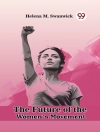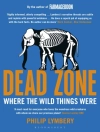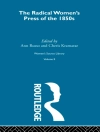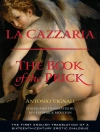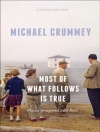New essays on the acclaimed Australian Indigenous author’s entire body of work, including his novels, short stories, poetry, and his work with Indigenous language and health.
Since the mid-1980s there has been a sharp rise in the number of literary publications by Indigenous Australians and in the readership and impact of those works. One contemporary Aboriginal Australian author who continues to makea contribution to both the Australian and the global canon is Kim Scott (1957-). Scott has won many awards, including Australia’s highest, the prestigious Miles Franklin Award, for his novels
Benang (in 2000) and
That Deadman Dance (in 2011). Scott has also published in other literary genres, including poetry, the short story, and children’s literature, and he has written and worked professionally on Indigenous health issues. Despite Scott’snational and international acclaim, there is currently no comprehensive critical companion that contextualizes his work for scholars, students, and general readers.
A Companion to the Works of Kim Scott fills this void by providing a collection of eleven original essays focusing on Scott’s novels, short stories, poetry, and his work with the Wirlomin Noongar Language and Stories Project and Indigenous health. The companion also includes an originalinterview with the author.
Contributors: Christine Choo, Arindam Das, Per Henningsgaard, Tony Hughes-d’Aeth, Jeanine Leane, Brenda Machosky, Nathanael Pree, Natalie Quinlivan, Lydia Saleh Rofail, Lisa Slater, Rosalie Thackrah and Sandra Thompson, Belinda Wheeler, Gillian Whitlock and Roger Osborne.
Belinda Wheeler is Associate Professor of English at Claflin University, Orangeburg, South Carolina.
Tabella dei contenuti
Foreword – Jeanine Leane
Acknowledgments
Note on Orthography
Chronology of Key Writings
Introduction – Belinda Wheeler
Kim Scott’s Publishing History in Three Contexts: Australian Aboriginal, National, and International – Per Henningsgaard
Kim Scott’s
True Country as Aboriginal
Bildungsroman – Brenda Machosky
The Land Holds All Things: Kim Scott’s
Benang- A Guide to Postcolonial Spatiality – Lisa Slater
Kim Scott’s
Kayang and Me: Noongar Identity and Evidence of Connection to
Country – Christine Choo
‘Wreck/Con/Silly/Nation’: Mimicry, Strategic Essentialism, and the ‘Friendly Frontier’ in Kim Scott’s
That Deadman Dance – Arindam Das
The International Reception of Kim Scott’s Works: A Case Study Featuring
Benang – Gillian Whitlock
The International Reception of Kim Scott’s Works: A Case Study Featuring
Benang – Roger Osborne
Traumatic Landscapes: Inscribing Spectrality and Identity in Kim Scott’s ‘A Refreshing Sleep, ‘ ‘Capture, ‘ and ‘An Intimate Act’ – Lydia Saleh Rofail
Spatial Poetics and the Uses of Ekphrasis in Kim Scott’s ‘Into the Light’ and Other Stories – Nathanael Pree
The Poetry of Kim Scott – Tony Hughes-d’Aeth
The Wirlomin Project and Kim Scott: Empowering Regional Narratives in a Globalized World of Literature – Natalie Quinlivan
Kim Scott as Boundary Rider: Exploring Possibilities and New Frontiers in Aboriginal Health – Rosalie Thackrah
Kim Scott as Boundary Rider: Exploring Possibilities and New Frontiers in Aboriginal Health – Sandra Thompson
An Interview with Kim Scott – Belinda Wheeler
Notes on the Contributors
Index


